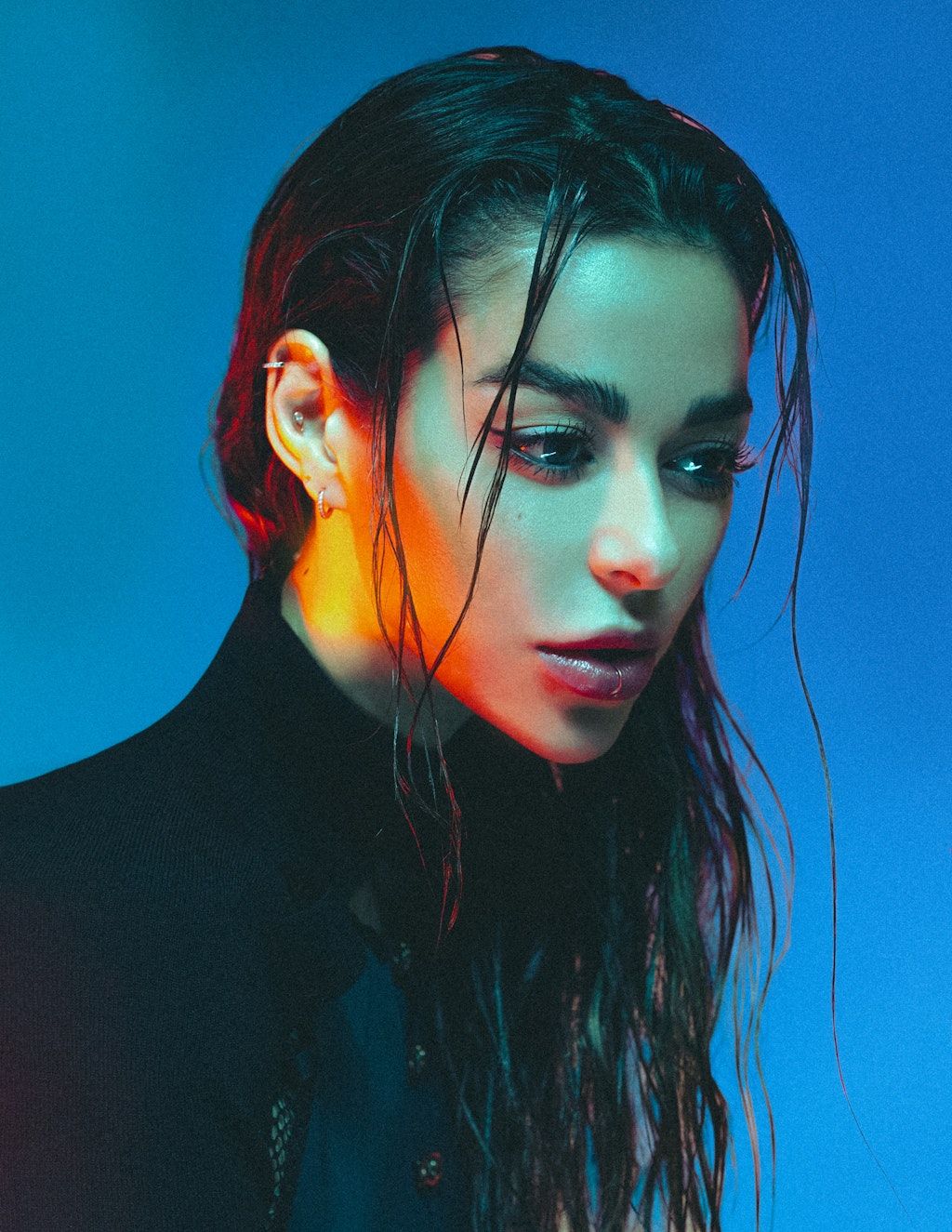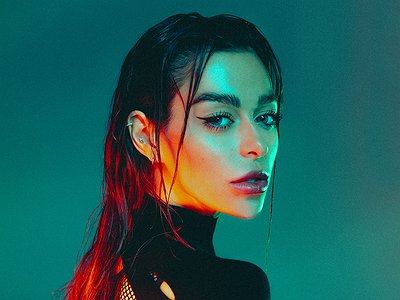Name: Lauren Mia
Nationality: American
Occupation: Pianist, composer, DJ, songwriter, vocalist, producer
Current Release: Lauren Mia's debut studio album Re:Birth is out via Ear Porn.
If you enjoyed this Lauren Mia interview and would like to stay up to date on her music and live dates, visit her official homepage. She is also on Instagram, Facebook, and twitter.
What were your very first steps in music like and how would you rate the gains made through experience - can one train/learn being an artist/producer?
I started to play piano at a very young age, thanks to my wonderful parents who were deeply immersed in music culture as well. I started around the age of 4 and was classically trained by a wonderful piano teacher named Stella. I trained with her weekly until I was about 13 years old. From there, my musical interests continued to expand from participating in school choir, school musicals, attending weekly vocal-lessons with a wonderful vocal coach named, Jeffery Allen, just to name a few.
So, my musical background runs deep and that definitely benefited me when it came to understanding the compositional, theoretical, creative and stylistic aspects of music production. I studied in multiple different music-schools, programs and academies after I completed my Bachelors of Arts and Science Degree at California State University of Northridge.
Another big part of my first steps in music was YouTube. Youtube became my best friend. An incredible tool that offers SO MUCH information around the fundamentals of music production, sound design, and so much more. I think anyone can learn how to use a DAW and “produce” electronic-music even just from Youtube itself.
Today, I don't even think people should feel they need to attend music-school in order to learn how to produce, when we're looking at the fact that there are thousands of videos online that are available for free for people to learn the fundamentals and functions of Ableton and/or any Digital Audio Workstation. In addition to that, there are millions of audio samples out there as well as digital synths, plug-ins, presets, patches, and the list goes on.
However, I firmly believe something that cannot be taught is taste, style and true creativity. That comes from one’s own self, trial and error, practice, dedication, commitment and hours devoted to the craft. That’s where you build technique, that's where you build your style and that's where one is on the true path of being an “innovative” music producer.
Making music, in the beginning, is often playful and then becomes increasingly professionalised. How important is playfulness for you today and if it is important, how do, concretely, you retain it?
Making music was nothing but pure pleasure and play in the beginning. A hobby. A hobby I became very obsessed with.
After University and my completion of my studies within music, audio-engineering, and production, there were a few years where I was merely making music for the sake of creating, play, pleasure, and fun. I was so free and in it without any expectations that I was confident enough to publish music at such an early stage, that was of poor quality because I was determined to mix my own music.
I don’t feel my approach at the start was from a solid professional standpoint, to be honest. At first, I didn't think or know what was to come of it. I just was doing something I loved and was deeply passionate about, and as a result, to this day, there is music that lives out there and is available to the public that I am almost embarrassed of, because of its quality, mix, overall arrangement and sound design haha. I was just going for it. I was confident. I was doing it all on my own. I didn’t even know or think of having a professional engineer help me mix my music before I put it out or would send it to labels (embarrassing).
But as time went on and I reached out to artists I admired and looked up to, there was a point where a mentor suggested that I send my music to an experienced engineer to help me mix and master my tracks and referred me to someone.
I remember the first time I ever sent my music to an engineer to mix and master it. He was a mastering-engineer (who primarily mixed and mastered alternative rock because I still didn't really know many people within the electronic music field at that stage) and he was so annoyed with me because the stems I sent him were not propery gain-staged, nor did I even put fades on some of the audio clips. I remember he texted me saying, “putting fades on your audio clips is such a basic thing,” pointing out that I did not really know what I was doing. And well, he was right, but that was only more fuel and determination for me to understand, excel and advance my skills as a producer. 
Lauren Mia Interview Image (c) the artist
I wanted to master the craft (which I will say 7 years later is still a work in progress). I was just such an amateur, but I was committed to figuring it out. I was so devoted to my craft and spent 12 hours on average every single day for those first 4 years, and as a result my skills as a producer excelled exponentially, because it really comes down to the hours you put into this craft. The hours you spend navigating, solving puzzles, answering your own questions, getting stuck, being frustrated, breaking barriers, discovering, achieving - like I said before, trial and error.
So by 2021 my quality of music reached the point where I started to get signed by major labels. That’s when my career took off a bit and quickly … at a rate that I sometimes felt I could not keep up with at first. It had me on the road a lot, and then my play and pleasure around producing slowly started to dissipate. The pressure, the traveling, the expectations, the hours, the movement, and the success took the fun out of my craft.
It took me a solid year to connect back to my passion and love for producing music again. I remember even having conversations with Axel Haube and David Linder about this, and seeking advice on how to find balance and love for my hobby and passion, which now became my professional career.
I would say this year more than ever, I make “playfulness” my top priority when creating music. I have to love it, enjoy it. It's art. That’s what it's all about. I found that again though liberating myself from self inflicted limiting beliefs, and also industry pressures, which I can now finally say, all my sessions are my favorite moments, my fun, my play. And I am truly grateful for that.
Which other producers were important for your development and what did you learn from them?
Some producers that have had a huge impact on me would easily be Clawz SG, Aalson, and Stephan Bodzin.
[Read our Stephan Bodzin interview]
I’ve built a strong relationship with both Sylvain and Aloys throughout the last 6-7 years and have remixed both their songs and them, mine too. But my friendships with both have always been heavily influenced by music, and I think I’ve learned a lot from both of them in different ways. All we talked about was music.
With Clawz (Sylvain) he gave me a lot of theoretical advice because he’s a lot older than me and has been doing this for over 30 years. He offered advice on how I should try to lean more towards analog synthesis and analog sound-design as much as possible, and why. He also shared mixing techniques on phone calls, and guided me on which synths I should buy, based on my taste and what I was seeking. He is extremely wise, but of course the language barrier was sometimes difficult as he is based in France and English is very much a second language to him.
Aalson (Aloys) offered me a lot of feedback on tracks I would send him, and shared mixing techniques, for example on how to avoid phasing issues, or how to properly eq my kick and bass, and all low-end elements, etc.
Bodzin really just had a melodic influence on me as a whole. His melodic progressions, harmonies, sound-design and analog synthesis are what has led me to see him as a true musical-idol. I really look up to him and I admire Clawz, Aalson, and many other producers too. Fat Cosmoe, Mark Hoffen, Binaryh, Coeus, Innellea, Monolink, Anna, are just a few names of the many I deeply admire and support.
[Read our Innellea interview]
[Read our Monolink interview]
Late producer SOPHIE said: “You have the possibility with electronic music to generate any texture, and any sound. So why would any musician want to limit themselves?” What's your take on that and the relevance of limitations in your set-up and process?
I could not agree more.
I actually have made this a really important focus of my journey as a professional in the last few years, because I feel there was a point where I was limiting myself creatively to try and fit into what the big labels and my audience were seeking. It definitely made me fall out of love of producing music for a short time. But once I shattered those limiting belief systems and liberated myself creatively, I fell more deeply in love with my production process and compositions more than ever before.
I think it's so important for all of us to remember that what makes art special is the freedom of self-expression. My best art comes out of me when I have no expectations, specific focuses, goals around what I am going to create or how it will turn out.
That leaves so much space to expand on sound-design, textures, rhythmic patterns and harmonies. To just be free with it. Go nuts. You never know when something extraordinary will come from it.





